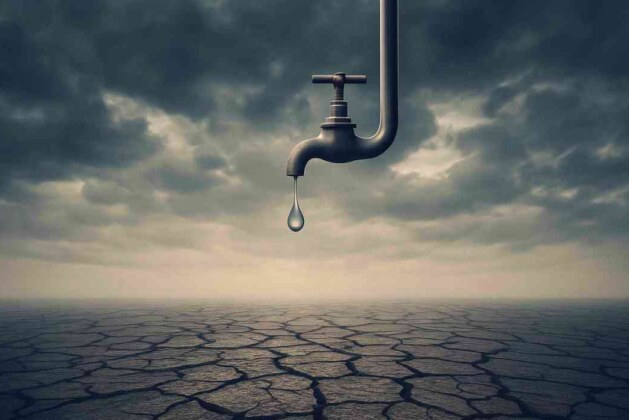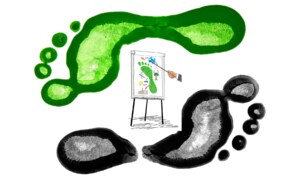Water is life — yet in the 21st century, this essential resource is increasingly turning into a source of tension, often referred to as “Water Wars.” From shrinking rivers to depleting underground aquifers, nations are competing for access to freshwater like never before. Climate change, rapid population growth, and mismanagement are pushing water supplies to the brink, and this crisis is now reshaping politics, economies, and international relations. Understanding the concept of water wars helps us prepare for the future — a future where controlling water might be as critical as controlling oil once was.
Table of Contents
Introduction — When Water Becomes Power
We rarely stop to think about how vital water is — until it stops flowing. For many of us, turning on a tap is so normal that we forget water is not infinite. But for nearly 2 billion people worldwide, water scarcity is already a harsh reality. The United Nations predicts that by 2050, more than half of the global population could live in water-stressed regions.
This growing scarcity has transformed water into a tool of power and even a source of conflict. Water wars are not just a topic for future science fiction novels — they are happening now. From disputes over shared rivers to rising tensions in drought-stricken regions, water is shaping global politics and may well decide the outcome of future conflicts.
The Root Causes of Water Scarcity
Before we can understand, we need to know why water scarcity is getting worse. Several key factors are driving this crisis:
- Climate Change: Hotter temperatures mean faster evaporation, reduced rainfall, and prolonged droughts. Melting glaciers also disrupt the seasonal flow of freshwater rivers.
- Overuse of Water: Agriculture consumes nearly 70% of global freshwater, often through inefficient irrigation systems that waste huge amounts of water.
- Pollution: Industrial waste, untreated sewage, and plastic pollution make water unsafe for use, reducing the amount of drinkable water available.
- Population Growth: With billions more people expected by 2050, global demand for food, energy, and water will skyrocket.
These combined pressures mean that competition for water is inevitable — and that competition often spills over into political tension.
Water Wars — When Scarcity Sparks Conflict
The term “water wars” refers to conflicts in which water is at the heart of the struggle. Sometimes this means direct disputes between countries, and other times it involves internal conflicts within a single nation.
Some notable examples include:
- The Nile River Dispute: Ethiopia’s Grand Renaissance Dam project is designed to generate electricity, but Egypt fears it will reduce its share of Nile waters, threatening its agricultural system and economy.
- India–Pakistan Tensions: The Indus Waters Treaty, which regulates river sharing between the two nations, has faced challenges as both sides accuse the other of overuse and diversion.
- Middle Eastern Water Crisis: Years of drought and mismanagement contributed to instability in Syria, forcing millions from their homes and fueling political unrest.
These examples show how access to water can destabilize entire regions and lead to long-lasting political disputes.
The Economic Toll
Water wars are not just about politics — they have major economic implications. Reduced water availability affects:
- Food Production: Crops fail when irrigation systems run dry, leading to higher food prices globally.
- Energy Generation: Hydropower plants lose efficiency, causing power shortages and rising energy costs.
- Urban Growth: Cities facing water rationing experience slower economic development and rising social unrest.
For businesses and governments alike, securing reliable water access is becoming a key economic priority.
Water Diplomacy — Turning Conflict into Cooperation
The good news is that water wars don’t always end in violence. Many disputes have led to historic agreements that promote cooperation rather than conflict.
- The Indus Waters Treaty has endured decades of tension between India and Pakistan, proving that even rivals can share resources peacefully.
- The Mekong River Commission allows Southeast Asian nations to collaborate on managing one of the most important rivers in the region.
By investing in water diplomacy, nations can create solutions that benefit everyone — from sharing data on rainfall to funding joint water infrastructure projects.
Solutions for a Water-Scarce Future
To prevent future water wars, we must rethink how we use, manage, and share water. Some promising solutions include:
- Modern Irrigation Systems: Drip irrigation and precision agriculture reduce waste and improve crop yields.
- Desalination and Recycling: Turning seawater into drinkable water and recycling wastewater are crucial technologies for water-stressed regions.
- Conservation Policies: Encouraging industries and households to use water efficiently can make a massive difference.
- International Treaties: Strengthening existing agreements and creating new ones ensures shared water resources don’t become flashpoints for war.
Conclusion
In the 21st century, water is becoming one of the most valuable — and contested — resources on Earth. Water wars serve as a warning of what might come if we fail to act. Governments, industries, and individuals must work together to ensure water is used sustainably and shared fairly.
The future does not have to be defined by conflict. If we invest in technology, diplomacy, and public awareness today, we can transform water from a source of war into a foundation for peace and cooperation.
Read More: Carbon Footprint 101: What It Is and Why It Matters for Our Future




